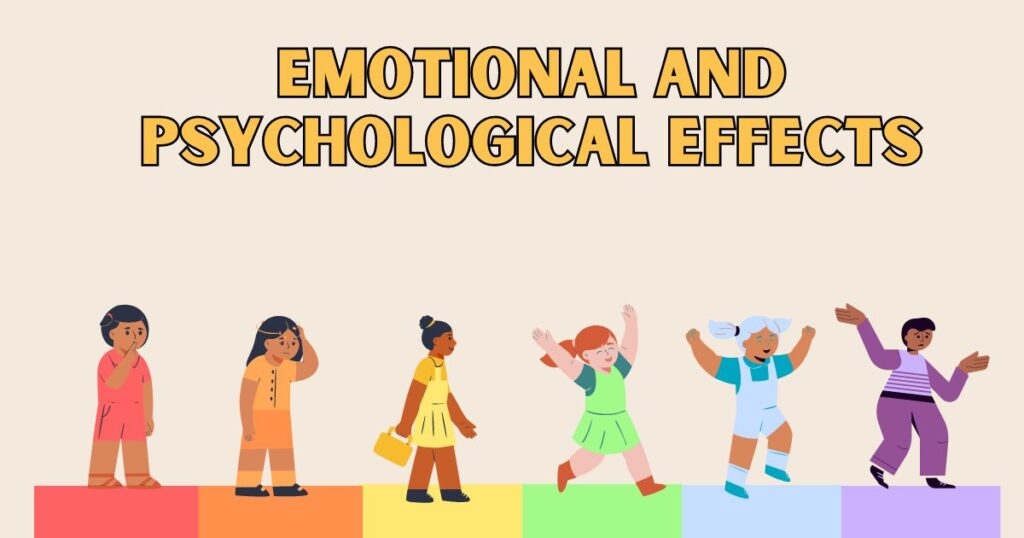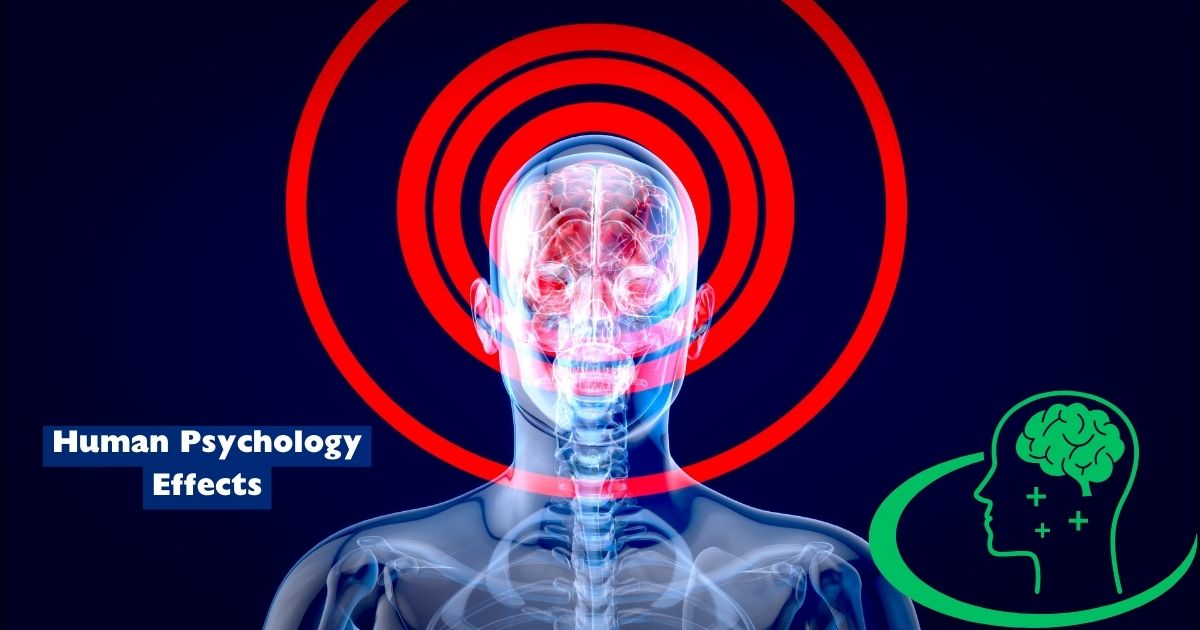Introduction:
Human Psychology Effects
Human psychology effects play a crucial part in shaping our behavior, thoughts, and intelligent. These effects are signs of different cognitive biases, emotional responses, and natural impacts that affect our daily lives. Understanding these mental impacts can provide valuable insights into human nature and offer practical applications for personal development, helpful intercessions, and improved social interactions. This article explores key psychological effectsand their implications across different contexts.
Cognitive Biases and Perceptual Effects
Here is a table summarizing some key cognitive biases and perceptual effects:
| Bias/Effect | Description | Example |
| Primacy Effect | Tendency to remember the first items in a sequence better. | Remembering the first few items on a grocery list more easily. |
| Recency Effect | Tendency to remember the last items in a sequence better. | Recalling the last few tasks from a long list of instructions. |
| Spotlight Effect | Overestimating how much others notice our actions and appearance. | Feeling like everyone noticed your minor mistake during a presentation. |
| Mere Exposure Effect | Developing a preference for things simply because they are familiar. | Liking a song more after hearing it multiple times on the radio. |
| Overconfidence Effect | Overestimating one’s abilities or the accuracy of one’s beliefs. | Believing you are more skilled at driving than the average person. |
| Pygmalion Effect | Higher expectations leading to improved performance. | Students performing better when teachers have higher expectations of them. |
| Bystander Effect | Less likely to help in an emergency when others are present. | Witnesses not calling for help during a public altercation. |
| Self-Fulfilling Prophecy | Beliefs leading to actions that cause the expected outcome. | Believing you will fail an exam and then performing poorly because of anxiety. |
| Social Facilitation | Enhanced performance on simple tasks in the presence of others. | Running faster when competing in a race with others versus running alone. |
| Placebo Effect | Experiencing positive health outcomes due to belief in treatment. | Feeling better after taking a sugar pill that you believe is real medication. |
| Hedonic Treadmill | Returning to a stable level of happiness despite major life changes. | Quickly adapting to both winning a lottery and experiencing a setback. |
| Imposter Syndrome | Doubting one’s accomplishments and fearing being exposed as a “fraud”. | A high-achieving professional feeling unqualified despite their success. |
| Paradox of Choice | More choices leading to less satisfaction and more regret. | Feeling overwhelmed and dissatisfied when choosing from many similar products. |
Cognitive biases are efficient patterns of deviation from standard or rationality in judgment, which often occur due to our brain’s attempt to simplify information processing. Here are some prominent cognitive biases and perceptual effects:
Primacy and Recency Effects:
These effects refer to the inclination to remember the first and last items in an arrangement more successfully than the middle items. The primacy effect highlights the impact of beginning data on memory maintenance, whereas the recency impact emphasizes the significance of the later information.
Spotlight Effect:
The spotlight impact is the propensity to overestimate the amount others notice our activities and appearance. This mental tendency can prompt superfluous nervousness and hesitance, as individuals often acknowledge they are under more examination than they are.
Mere Exposure Effect:
The simple presentation effect suggests that individuals tend to create a preference for things merely since they are familiar with them. Repeated exposure to an object or person increases our probability of developing a positive attitude towards them, indeed without any substantive interaction.
Overconfidence Effect:
This bias refers to the tendency to overestimate one’s capacities, data, or the accuracy of 1’s beliefs. Overconfidence can lead to imperfect decision-making and a failure to understand one’s obstacles.
Social and Interpersonal Effects

Emotional and Psychological Effects
Human interactions are significantly influenced by various psychological effects, which can impact relationships, group dynamics, and social behavior:
Pygmalion Effect:
The Pygmalion effect is the marvel where higher expectations lead to improved performance. When people accept that others anticipate great things from them, they are more likely to rise to the occasion and achieve higher results.
Bystander Effect:
The bystander effect occurs when others are too close to intervene in an emergency. With more witnesses, individuals in the group feel less responsible, so they are less likely to offer to help.
Self-fulfilling prophecy:
A self-fulfilling prophecy is a prediction that causes itself to become true due to the behaviour it generates. For example, if the teacher believes a student is high-achieving, they may provide more encouragement and support, leading to performing better.
Social Facilitation:
Social facilitation alludes to the tendency for individuals to perform way better on simple tasks when in the presence of others. This effect highlights how social environments can enhance or impede performance depending on the complexity of the errand and the level of individual expertise.
Emotional and Psychological Effects
Emotional responses and psychological states are affected by various factors that can shape mental health and well-being:
Placebo and Nocebo Effects:
The fake treatment impact happens when an individual encounters a positive well-being result due to their conviction in the viability of a treatment, indeed if it is inert. Then again, the nocebo impact is when negative desires lead to more regrettable results. Both impacts emphasize the control of the intellect in affecting physical health.
Hedonic Treadmill:
The hedonic treadmill describes the tendency for people to return to a stable level of happiness despite major positive or negative occasions. This phenomenon recommends that people quickly adapt to new circumstances, which may explain why enduring bliss regularly appears elusive.
Imposter Syndrome:
Imposter syndrome is the inner revel in of believing that one isn’t always as in a position as others see them to be. This phenomenon can cause continual self-doubt, fear of being uncovered as a “fraud,” and a failure to internalize accomplishments
Paradox of Choice:
The paradox of choice sets that having too many options can lead to choice paralysis and decreased satisfaction. When faced with various choices, people may experience anxiety, regret, and second-guessing, ultimately leading to less happiness with their final decision.
Environmental and Contextual Effects
The environment we live and work in plays a critical role in forming our mental wellbeing and psychological well-being:
Impact of Environment on Mental Health:
Environmental factors such as workplace conditions, school settings, and social situations can significantly affect mental well-being. High-stress jobs, harmful work environments, and the need for social back are linked to expanded anxiety, depression, and burnout.
Human-Animal Interaction:
Interacting with animals has appeared to reduce stress, upgrade temperament, and advance social interactions. The presence of a friendly animal can act as a social catalyst, improving social behaviour and increasing positive social consideration from others.
Psychological Mechanisms and Theories
Understanding the underlying psychological mechanisms can help explain various effects and give an establishment for practical applications:
Oxytocinergic System:
The oxytocinergic framework includes the release of oxytocin, a hormone related with social holding and stress decrease. Oxytocin plays a pivotal part in human-animal interactions, encouraging trust, empathy, and social connections.
Cognitive Dissonance:
Cognitive dissonance refers to the discomfort experienced when holding conflicting beliefs or attitudes. This discomfort regularly leads people to alter their convictions or behaviors to decrease the irregularity and achieve internal harmony.
Practical Implications and Applications
The insights gained from understanding psychological effects can be applied in different ways to improve person and collective well-being:
Personal Development:
By recognizing and mitigating cognitive biases, individuals can make better choices, improve self-awareness, and achieve individual development. Understanding the human psychology effect, for example, can help decrease unnecessary self-consciousness and increment certainty in social settings.
Therapeutic Interventions:
Psychological effects such as the placebo impact and human-animal interactions can be utilized in therapeutic settings to improve treatment results. Animal-assisted therapy, for instance, utilizes the positive effects of human-animal interactions to progress mental health and social functioning.
Leadership and Management:
Applying information of psychological effects can improve leadership and management practices. The Pygmalion effect, for case, proposes that setting high desires for team members can lead to improved performance and productivity.
Conclusion
psychology effects are complex and multifaceted, influencing different aspects of our lives. By understanding cognitive biases, emotional reactions, and natural influences, we can better explore our behavior, improve our mental well-being, and cultivate more advantageous social intuition. The down-to-earth applications of these experiences offer important tools for individual development, therapeutic mediation, and effective leadership.
FAQs For Human Psychology Effects
1. What is the spotlight effect?
The spotlight impact is the propensity to overestimate how much others notice our activities and appearance. This cognitive predisposition can lead to unnecessary anxiety and self-consciousness.
2. How does the Pygmalion effect influence performance?
The Pygmalion effect recommends that higher expectancies cause advanced overall performance. When people take delivery of that others count on splendid things from them, they are more likely to rise to the event and accomplish higher effects.
3. What is the conundrum of desire, and how does it affect selection-making?
The paradox of preference posits that having too many alternatives can lead to selection paralysis and decreased fulfilment. When confronted with numerous selections, human beings may additionally experience uneasiness, remorse, and 2d-guessing, in the end using to much less bliss with their closing decision.
4. How do the surroundings impact intellectual health?
Environmental factors which include workplace situations, school settings, and social situations can appreciably affect intellectual wellness. High-stress jobs, toxic work environments, and the need for social help are linked to elevated uneasiness, despair, and burnout.
5. What role does oxytocin play in human psychology?
Oxytocin, often referred to as the “love hormone,” plays a crucial element in social protection, with, and strain diminishment. It is protected in exceptional tremendous social interactions, counting human-animal interactions, and contributes to typically mental well-being.


